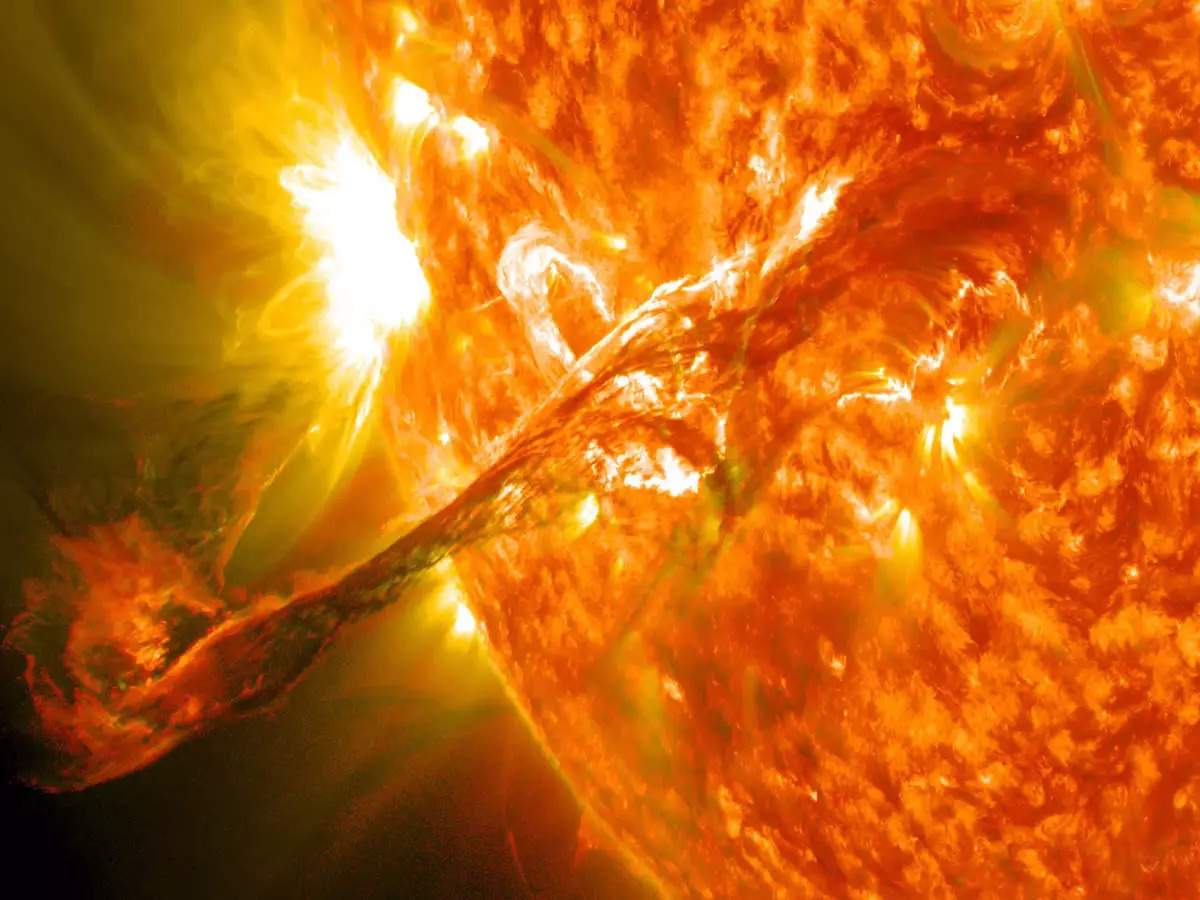According to NASA data, in the eventuality of such a collision, when the CME hits Earth, it can cause a large geomagnetic storm, which could lead to a disturbance in the Earth’s magnetic field and as well as the atmosphere by the solar plasma.
As per the same report by Newsweek, the head of the Solar Physics group at Aberystwyth University in the UK, Huw Morgan said, “When a large plasma storm erupts from the sun, and that storm carries a magnetic field which is oriented in an opposite direction to Earth’s magnetic field, we have a ‘perfect storm,’ and a larger geomagnetic storm.”
According to the research done by Spaceweather.com, a minor G1-class geomagnetic storm can occur late on November 25th, through to November 26th, as two CMEs are expected to graze the Earth’s magnetic field. Both CMEs were hurled into space by magnetic filaments erupting from the sun earlier this week.
”Solar flares and CME are both caused by the sun through its magnetic field being twisted and stressed through motions in the sun,” Daniel Brown, an associate professor in astronomy and science communication at Nottingham Trent University in the UK told Newsweek.
What are CMEs and how can it impact Earth?According to researchers, a coronal mass ejection is a large expulsion of plasma and magnetic fields from the Sun’s corona. The Sun’s corona is the outermost layer of the Sun’s atmosphere and it largely hidden by the Sun’s surface. These coronal ejections can eject billions of tons of coronal material and carry an embedded magnetic field that is stronger than the background solar wind interplanetary magnetic field (IMF) strength. CMEs travel outward from the Sun at speeds ranging from slower than 250 kilometers per second (km/s) to as fast as near 3000 km/s.Concurrently, disturbances in Earth’s magnetic field caused by solar emissions result in geomagnetic storms. These storms are categorized on a scale from G1 to G5, where G1 represents the least severe and occurs frequently, several times each month.
While a G1 geomagnetic storm isn’t anticipated to pose direct threats to life on Earth, its implications could impact power grids and the operational capacity of certain satellites, including disruptions to GPS systems and mobile devices.


